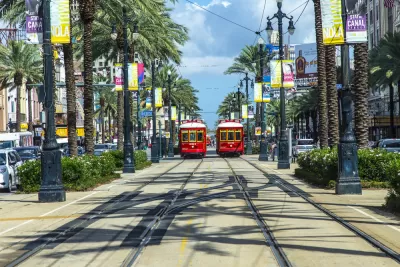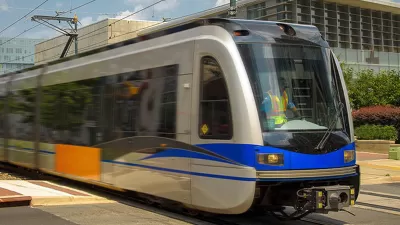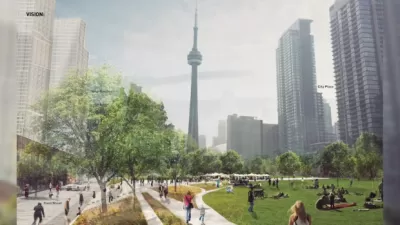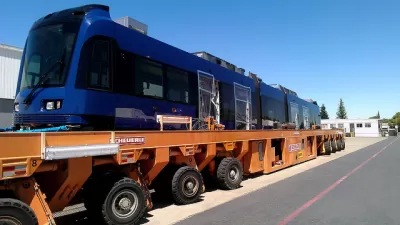Politico takes a critical look at the streetcar trend in American cities—which had some high profile setbacks during 2014—with an eye toward the legacy of the Obama Administration.

Kevin Robillard writes that the American streetcar renaissance is "threatening to run off the tracks — imperiled by cost overruns, lower-than-expected ridership in some places and pockets of local resistance."
"From D.C. to Atlanta, from San Antonio to Salt Lake City, streetcar projects have run into delays, cutbacks and other snags, and some have been scrapped altogether. The most dramatic recent example was November’s demise of a $550 million, state-aided streetcar project in the liberal, traditionally pro-transit D.C. suburb of Arlington County, Va., which had turned politically toxic as its price tag more than doubled."
Robillard presents streetcars as a product of the Obama Administrations collection of urban initiatives, supported by funding from TIGER grants. Former Transportation Secretary Ray LaHood, however, is quoted in the story explaining the political agenda behind the nation's rapidly expanding portfolio of streetcar projects: "former Transportation Secretary Ray LaHood, a major streetcar booster, is defiant. While the Obama administration changed its funding guidelines in 2010 to make more streetcar projects eligible for federal grants, the boom happened 'not because President Obama or Ray LaHood wanted, but because these communities wanted them,' he said. 'This is what mayors wanted. This is what city councils wanted.'"
FULL STORY: A streetcar not desired?

Planetizen Federal Action Tracker
A weekly monitor of how Trump’s orders and actions are impacting planners and planning in America.

Map: Where Senate Republicans Want to Sell Your Public Lands
For public land advocates, the Senate Republicans’ proposal to sell millions of acres of public land in the West is “the biggest fight of their careers.”

Restaurant Patios Were a Pandemic Win — Why Were They so Hard to Keep?
Social distancing requirements and changes in travel patterns prompted cities to pilot new uses for street and sidewalk space. Then it got complicated.

Platform Pilsner: Vancouver Transit Agency Releases... a Beer?
TransLink will receive a portion of every sale of the four-pack.

Toronto Weighs Cheaper Transit, Parking Hikes for Major Events
Special event rates would take effect during large festivals, sports games and concerts to ‘discourage driving, manage congestion and free up space for transit.”

Berlin to Consider Car-Free Zone Larger Than Manhattan
The area bound by the 22-mile Ringbahn would still allow 12 uses of a private automobile per year per person, and several other exemptions.
Urban Design for Planners 1: Software Tools
This six-course series explores essential urban design concepts using open source software and equips planners with the tools they need to participate fully in the urban design process.
Planning for Universal Design
Learn the tools for implementing Universal Design in planning regulations.
Heyer Gruel & Associates PA
JM Goldson LLC
Custer County Colorado
City of Camden Redevelopment Agency
City of Astoria
Transportation Research & Education Center (TREC) at Portland State University
Camden Redevelopment Agency
City of Claremont
Municipality of Princeton (NJ)





























